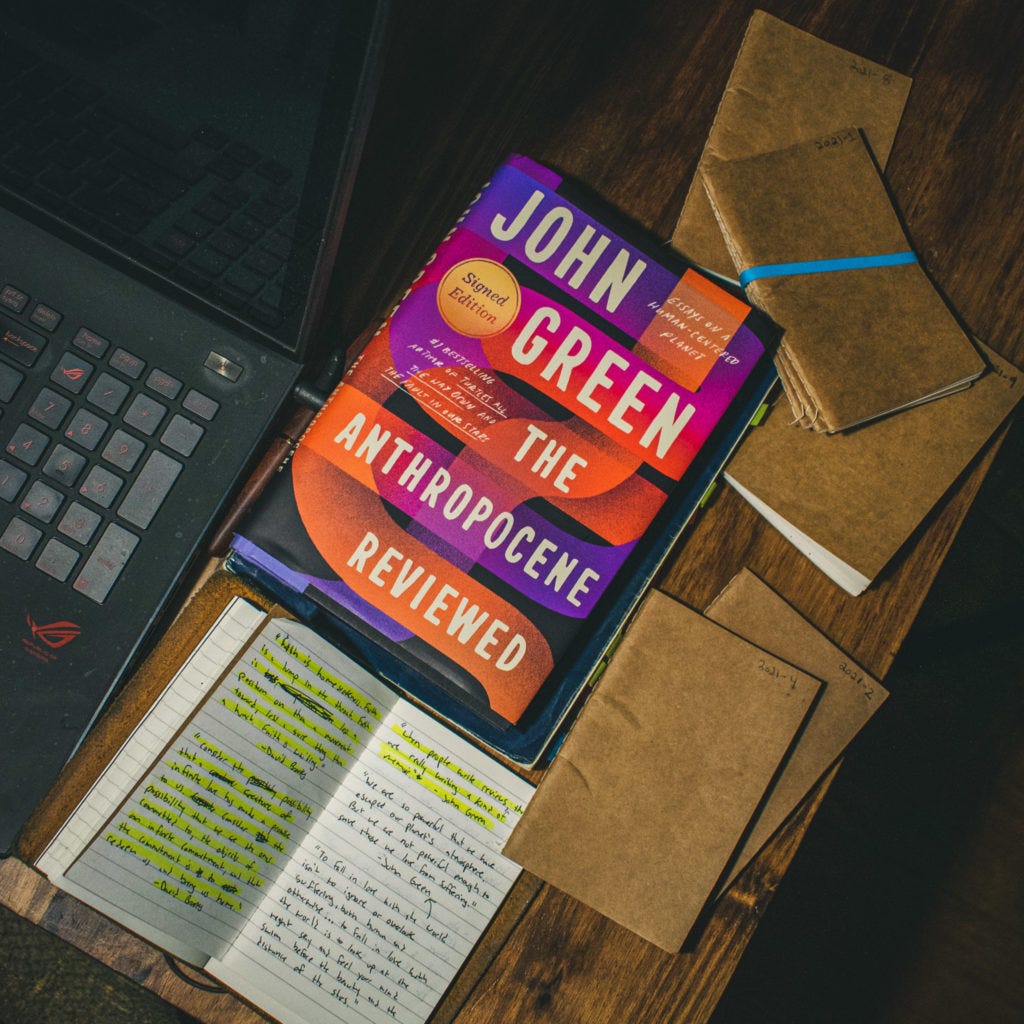Sustain faith...
Sometimes I wonder whether or not its actually accurate to say that we are killing the planet. Clearly our species has become the predominating force in influencing the Earth's environment, to such an extent, in fact, that scientists now refer to our current geological epoch as the Anthropocene. There can be no doubt that human hubris is, indeed, catastrophically impacting the planet and its various ecosystems and species, but I'm not sure we're killing the Earth so much as killing its ability to sustain and support "us". Perhaps, what we're really killing is its ability to sustain faith in us.
The planet has survived and persisted through cataclysms far greater than the human species, and won't skip a beat in pushing forward after we're gone. It lived long before we did and will continue to live long after all traces of humanity's torturous existence have vanished into the repressed memories of the Planet's post-traumatic road to recovery.
In some ways that's almost hopeful. The incredible insistence of Being. The inbuilt indomitability of life, itself; bolstered by its own tenacious capacity to persevere because it can, because it will, because it must. The Planet doesn't need saving, but we do, and perhaps that is as good a reason as any to work along side the planet's inherent ability to go-on. Perhaps that doesn't seem altruistic, but maybe it is.
On the worst days, amidst all the most horrendous atrocities of the Anthropocene, people suck, but also, in a miraculous display of paradoxical and oxymoronic simultaneity, we don't. On the best days, we are a poem; we feed the great lake of art, authors and thinkers, bursting and brimming with quotations and conversations. Somedays we are "Earth planting Earth into Earth." As Jacob Nordby says that "We are not one thing...We are many and all at the same time. Life is not simple or straightforward for those of us who must fight to express the many truths of who we are". We are shaped by the shards; formed in and by the fissures. Closed off parts of ourselves are broken open by traumas, and more often than not, the world is made better for the breakage, because in that wondrous and terrible opening we are exposed to the fragile sanctity of our shared humanity.
In one of the early chapters of the Anthropocene Reviewed John Green writes that when the light that was humanity finally "goes out, it will be Earth's greatest tragedy". Two years ago, I'm not sure I would have agreed. But today, as you and I chide our laughability with aching sides, as we revel in our shared reverence of books and reading, we are galvanized together and incited by ideas of human ingenuity and inquisitiveness. Daily we reach into the cavernous depths of ourselves, emerging with the words and language to most potently express the ferocity of our longings, and desires. We inhabit the fierceness of our yearning, our zeal, our lust, our excitement, and, especially our love, and I'm beginning to think differently. Love is after all that most awe-inspiring feat of all human endeavors. Isn't that, in and of itself, worth preserving? These things and more are so alive between you and I, and I realize "how wondrous humans are...how strange and [how] lovely". "We are, in spite of it all", Green writes "a charismatic species".
Nietzsche said that:
Once upon a time, in some out of the way corner of that universe which is dispersed into numberless twinkling solar systems, there was a star upon which clever beasts invented knowing. That was the most arrogant and mendacious minute of "world history," but nevertheless, it was only a minute. After nature had drawn a few breaths, the star cooled and congealed, and the clever beasts had to die. One might invent such a fable, and yet he still would not have adequately illustrated how miserable, how shadowy and transient, how aimless and arbitrary the human intellect looks within nature. There were eternities during which it did not exist. And when it is all over with the human intellect, nothing will have happened.
Nietzsche is right of course. When the brief smallness of our temporal range stands in stark contrast to the looming largeness of a near eternal universe, humanity is ultimately of little to no consequence. As John Green writes "The future will erase everything - there's no level of fame or genius that allows you to transcend oblivion. The infinite future makes that kind of mattering impossible."
And yet, I can't help but think that some deep down part of the cosmos will, from time to time, remember that for one gloriously ephemeral minute, the Earth was making meaning from Earth, and I'd like to believe that if there is any part of the universe left that still knows itself as itself, it will smile.
The planet will continue on once we have been caught by our own culling. It may never grieve our passing. It will probably never mourn our loss. But neither will it ever be the same. As we flicker out and fade away, so will the music, so will the laughter, and the art, and the poetry, and so will all the love. We may be the piece of the universe that wants to self-destruct, but perhaps we are also that piece that can summon the will to save itself, to sustain faith, to sustain faith in itself, to sustain faith in us. Somedays I'm hopeful, and some I'm not convinced, but maybe that's why its called faith, the faith of hands still willing to get a little dirt on them...
If you enjoyed this essay, consider supporting my work by Buying me a Coffee.



